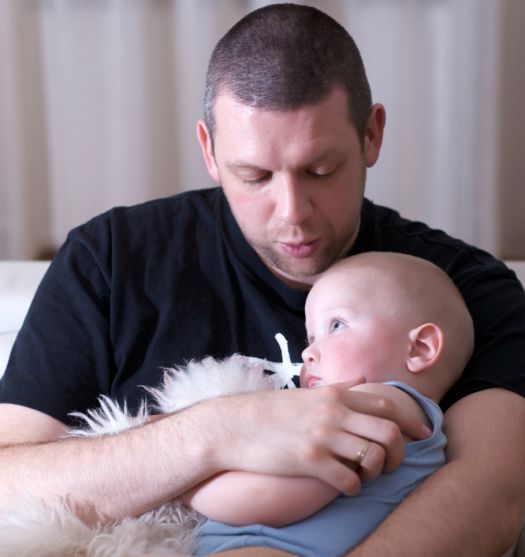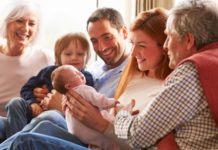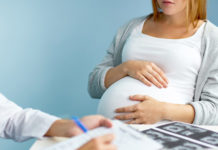We’re all familiar with the common cold, an irritating illness which causes sniffles, sneezes and coughs and is, as the name suggests, very common. But for parents, the common cold can seem anything but familiar when it’s their baby that can’t breathe properly because their nose is blocked or they’re upset by their cough and can’t sleep.
It’s normal for parents to feel a bit anxious, and wonder if they should just ‘wait and see’ if their baby improves, or race off to the doctor. Although an adult can generally deal with a cold without any treatment, baby’s bodies are more fragile, and infections like the common cold are more likely to become severe.
It’s important for parents to be able to distinguish between baby symptoms which are irritating and disruptive but no major health threat, and those that signal something could be seriously wrong with baby. Understanding what the common cold is, and how it affects babies differently to other similar infections like influenza, is a good starting point.
What causes baby colds in 3-12 month old babies?
Baby colds, like all other colds, are caused by viruses which infect the nose, throat and/or sinuses. There are over 200 different viruses which can cause the illness we refer to as a cold. They usually enter a baby’s body via their nose or mouth, when someone who has a cold touches the baby. Coughing and sneezing near the baby is less likely to cause infection. Colds are common because they are highly contagious and can be caused by so many different viruses.
Baby cold statistics for babies 3-12 months
Babies are more likely to catch colds than are older children or adults. In their first year of life, most babies catch a cold seven to twelve times! This is compared to children who may catch seven to ten colds per year, and adults who catch two to four colds per year. However, the risk varies depending on the baby and the things they do, especially whether or not they attend daycare. Babies who attend daycare (compared to those who are cared for at home) are more likely to catch cold or flu, for it to be more serious, and for it to last longer.
References
- Curtis GB, Schuler J. Week 10. In Your baby’s first year- week by week. 3rd 2010. De Capo Press. (Full text).
- Snellman L, Adams W, Anderson G. et al. Institute for Clinical Systems Improvement. Diagnosis and Treatment of Respiratory Illness in Children and Adults. Updated January 2013. (cited 17 May 2013). Available from: (URL Link)
- NHS Choices. Common cold in children. 2011. (cited 5 May 2013. Available from: (URL Link)
- Mayo Clinic. Common Cold in Babies- Symptoms. 2010. (cited 5 May 2013). Available from: (URL Link)
More information on colds in 3-12 month old babies
 |
For more information about the symptoms experienced by a baby with a cold, see Baby cold symptoms. |
 |
For information about which babies are more likely to get colds and how to prevent baby colds, see Baby cold prevention. |
 |
For more information about when to take a baby with a cold to the doctor, see When to see a doctor. |
 |
For more information about how to comfort and look after for your baby when they have a cold, see Caring for babies with colds. |
 |
For more information about simple measures you can take to relieve the symptoms of your baby’s cold (and medicines you should avoid), see Baby cold remedies. |
 |
For a quick reference guide to baby colds, see Baby colds: 10 tips for parents. |



 (4 votes, average: 4.00 out of 5)
(4 votes, average: 4.00 out of 5) 






